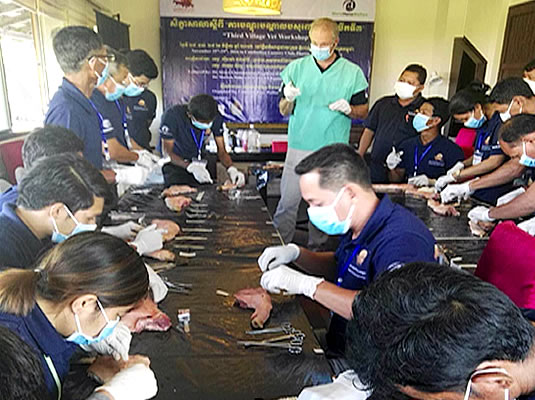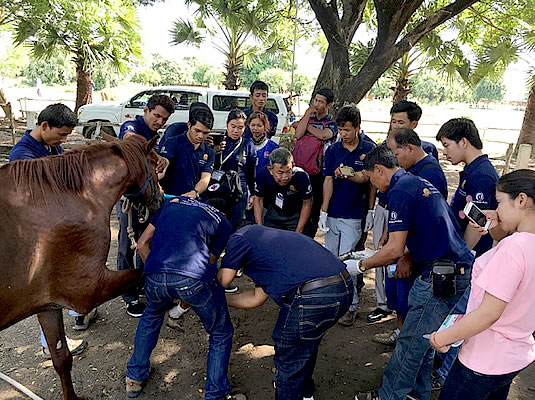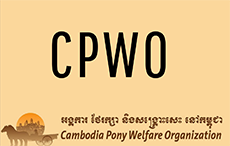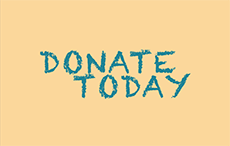A BEVA Trust trip to Phnom Penh with The Cambodian Pony Welfare Association
Dr Emma Preston – February 2023
I left the cold and wet tarmac of Heathrow on a gloomy Friday evening in February, still glued to my laptop at the gate, I shovelled in chips and raced to complete PowerPoint presentations while I still could, before boarding the plane and losing my Wi-Fi connection.
The Cambodian Pony Welfare Organisation manage and run an awe-inspiring project, funded by World Horse Welfare, involving veterinary knowledge exchange and working to improve the welfare of working equids in Cambodia. Although I wasn’t entirely sure what to expect, I felt excited, a little bit nervous and really privileged to play a small part in the work they do during my BEVA trust trip.
It took me a great many hours and a layover in Korea to reach my destination, I owe a huge thankyou to Izzy from World Horse Welfare and Leaya from BEVA Trust, who helped organise logistics and worked with the CPWO team to decide what equine veterinary topics would be most useful.
Arriving late at night to hot, sour humidity, I was relieved to be met by Rinda Nop, head vet at the Cambodian Pony Welfare Organisation and their smiley driver Sengly. They helped me to my hotel, transferred me and my luggage on to a golf buggy and I was whizzed across the dark to my room at the Cambodian Country Club, apparently to avoid the snakes who are attracted at this time of year to the swimming pool.
This was to be my home for the next week and my mission was to work alongside Rinda to deliver a series of lectures and practical sessions on equine veterinary topics at a workshop for Cambodian ‘village vets’. The ‘village vets’ are a group of local individuals who are the first to be called upon for veterinary care should a pony in their community be sick or injured. The village vets come to a workshop each year to learn about equine conditions and treatments, with many proudly attending their 7th or 8th workshop.
Cambodia is a country blighted by genocide. The horrors of Pol Pot and the Khmer Rouge’s regimen saw millions of innocent people murdered. Academics and professionals especially were targeted, which has led to a huge shortfall in veterinarians, especially those who specialise in horses.
Cambodia has a beautiful population of ponies. Thought to originate from Mongolia, they are small but very strong and used in the rice fields and to transport goods and timber for the logging industry. Training village vets equips them with vital skills and knowledge to take back to their communities and has been really effective in improving overall health and welfare of the working equids of Cambodia. The workshop was great fun and thoroughly rewarding, as the room came alive day upon day with laughter, questions and people sharing cases.
The frantic preparation prior to my trip was the result of a long list of eagerly anticipated topics including Tetanus, which is sadly encountered commonly as a result of wounds and a lack of routine vaccination, partly due to issues with availability. We also covered laminitis, which seemed to often result from grain overload or corticosteroid injections and an approach to the ‘skinny horse’ to name just a few topics that we covered. Rinda kindly shared images and videos that fit the context to include in my training material and he did an amazing job of translating.
CPWO runs outreach programmes, facilitating human behaviour change by using participatory approaches to engage communities. We travelled out to a rural province far from the city and I was amazed to see this in action in the grounds of a temple.
The village vets worked with their own community, first assessing the welfare of the ponies and providing worming treatments. Next all of the owners gathered together on a tarpaulin and discussed with CPWO and the village vets some of the health issues that affect their ponies.
Common symptoms were collected on post it notes and used to map out the main diseases of concern within the community. Once this was established the group came up with some possible management solutions that may be effective in preventing recurrences of the common illnesses for example prevention of impaction colic by giving working ponies more access to water.
One of the most interesting conditions I learnt about and observed was Big Head, or secondary nutritional hyperparathyroidism, that is common amongst these working ponies who are fed a diet of bran and tropical grasses. This leads to calcium deficiency through a number of physiological pathways I (vaguely) remembered from vet school.
Rinda and his experienced team also provide emergency care, and this sounds especially challenging, as they are relied upon to travel huge distances to attend ponies in need.
During the week I was fortunate enough to spend a day delivering lectures and practical sessions to veterinary students at the university in Phnom Penh, where Molly, a very sweet natured pony joined me and a small number of students for a practical session at the University farm. A great many students had never interacted with a pony before and were unsurprisingly nervous, but they were amazing, gaining confidence to attempt their first equine clinical exam and to practice bandaging a distal limb. The university are really keen to work more closely with CPWO on the equine curriculum and they even send students for internships, to help develop equine skills in the future generation of vets.
My BEVA trust trip was humbling. I learnt that there are no textbooks published in Khmer, the language of Cambodia and this presents a huge barrier to knowledge for Cambodian vets. I don’t have the words to describe how powerful I found the human behaviour change project and the dedication shown by Rinda and the CPWO team. They carry a huge weight of responsibility, a big workload and their work is truly inspirational. Their work has a huge impact, improving the health and welfare of Cambodian ponies and therefore the welfare of the communities they support. Thank you to the BEVA trust for the opportunity.
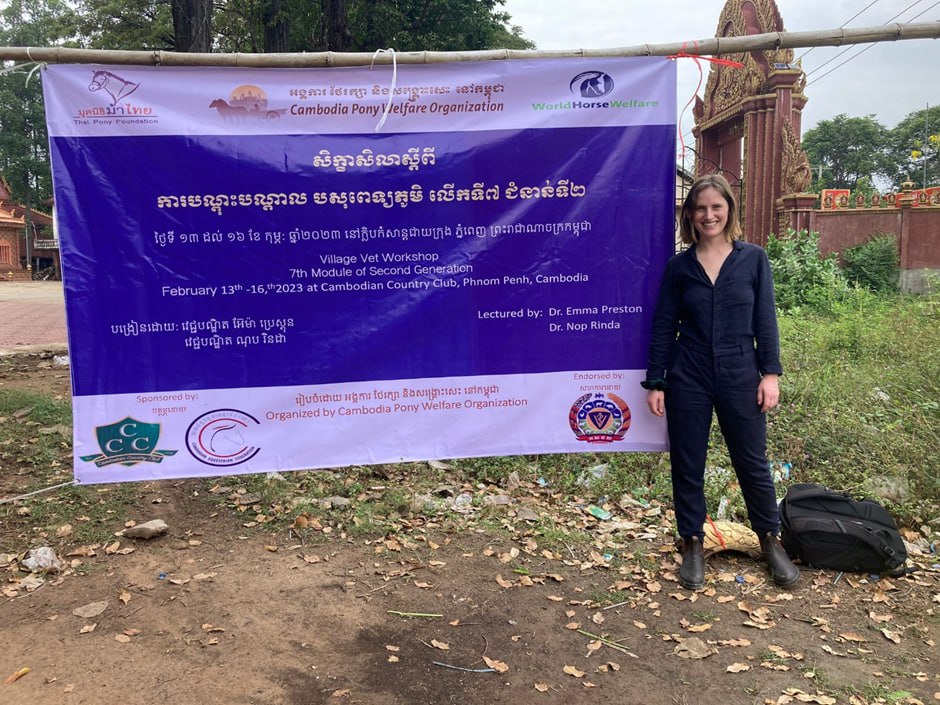
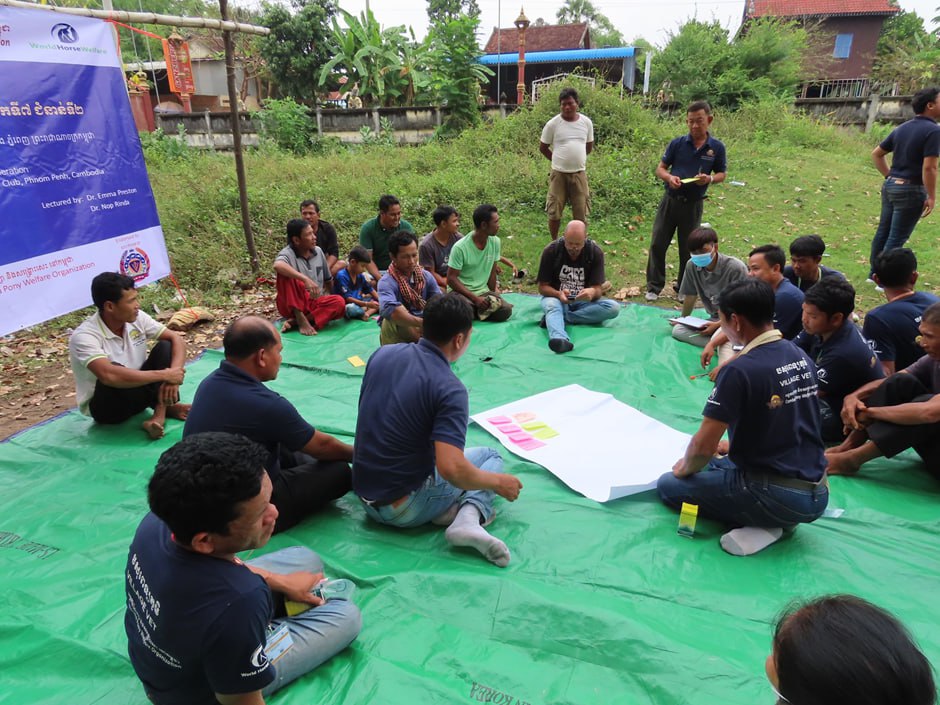
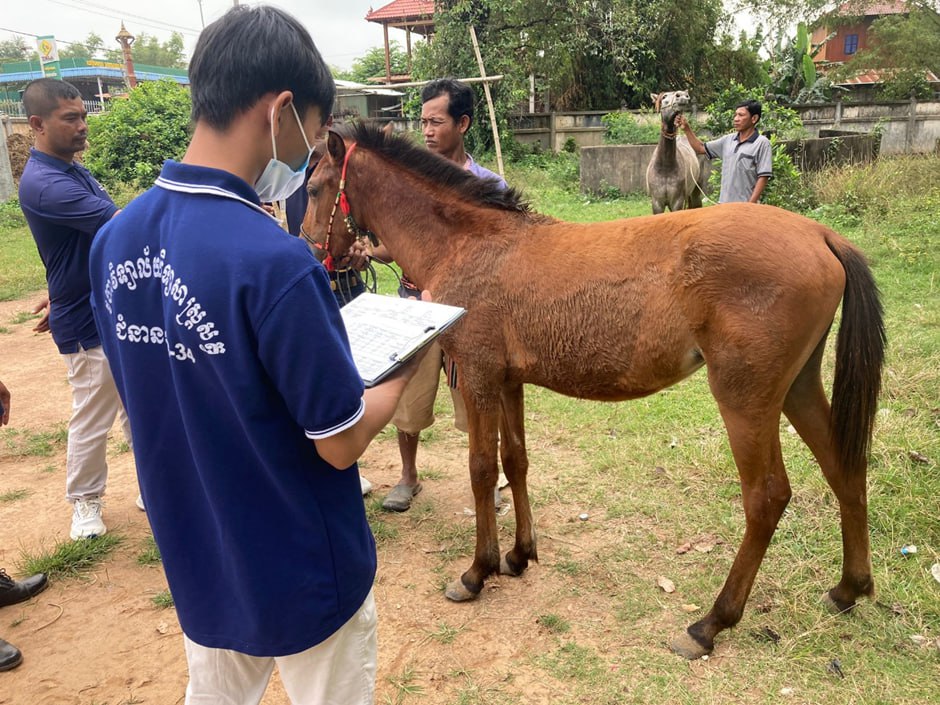
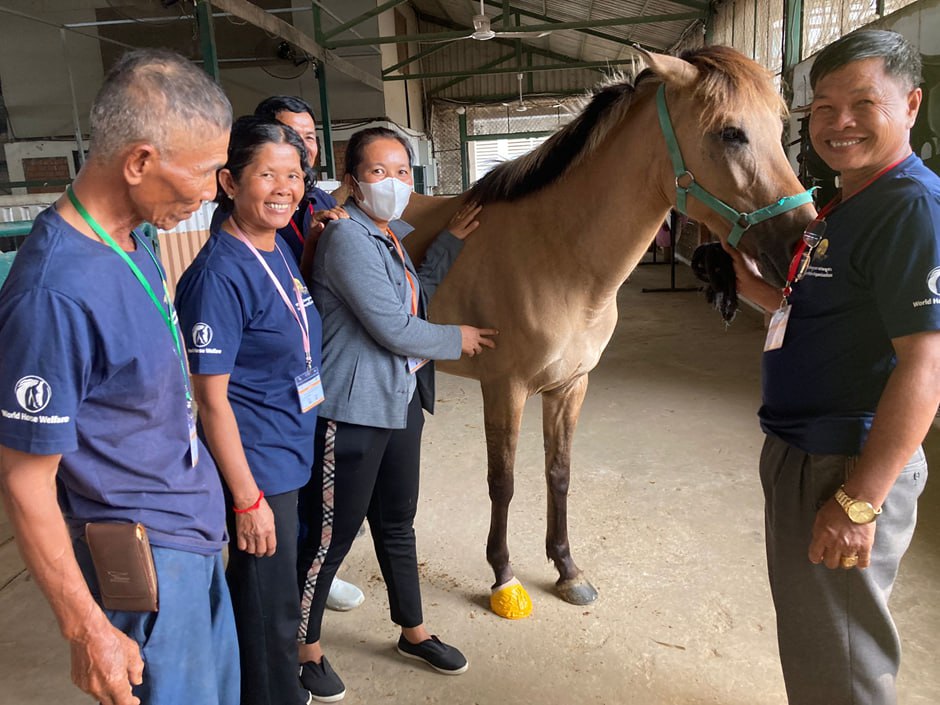
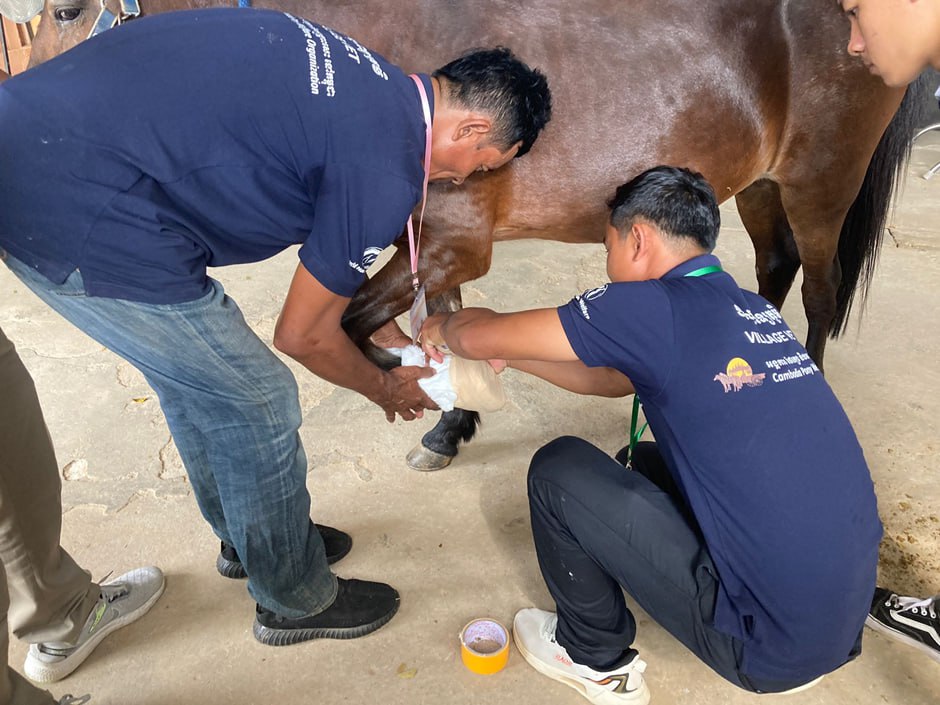
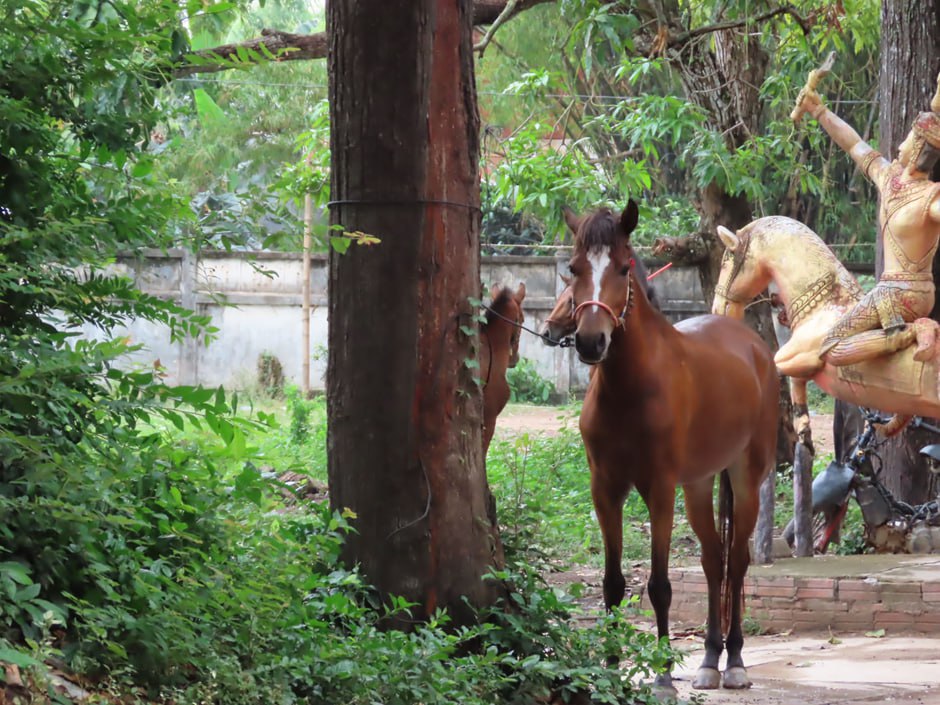
I am a French woman of 44 years old who live in Cambodia. Passionate of animals and especially of horses I´ve been ridden horses for more than 20 years starting as a kid. Was not a surprise I wanted to work with horses. But life decided to take me on an other course. After 10 years in finance and 5 years in building construction, I went back to school first to study human osteopathy to become a massage Osteo vertebro Therapist and then to go back to my roots, horses.
Specializations
Today I am in the path to become a functional equine osteopath. I am studying at Animal Osteopathy International based in England till 2024. My goal is to be specialised in both equine and human functional osteopathy to be able to treat the horse and the rider.
A journey with CPWO
An incredible encounter with CPWO team in Kampong Cham province to see farmer’s horses for general vet check, deworming, disease prevention advice and even surgery. I was amazed of the trust they built with farmers, and what they achieve in animal welfare. I also met the village vet trained by CPWO who does an amazing job on site. I will be proud to be part of this organization which provide so much to the welfare animal in this country and also to the community.
Mélissa Dubard
Osteo Vertebro Massage therapist for human and horses, Yoga & Pilates Teacher
From France
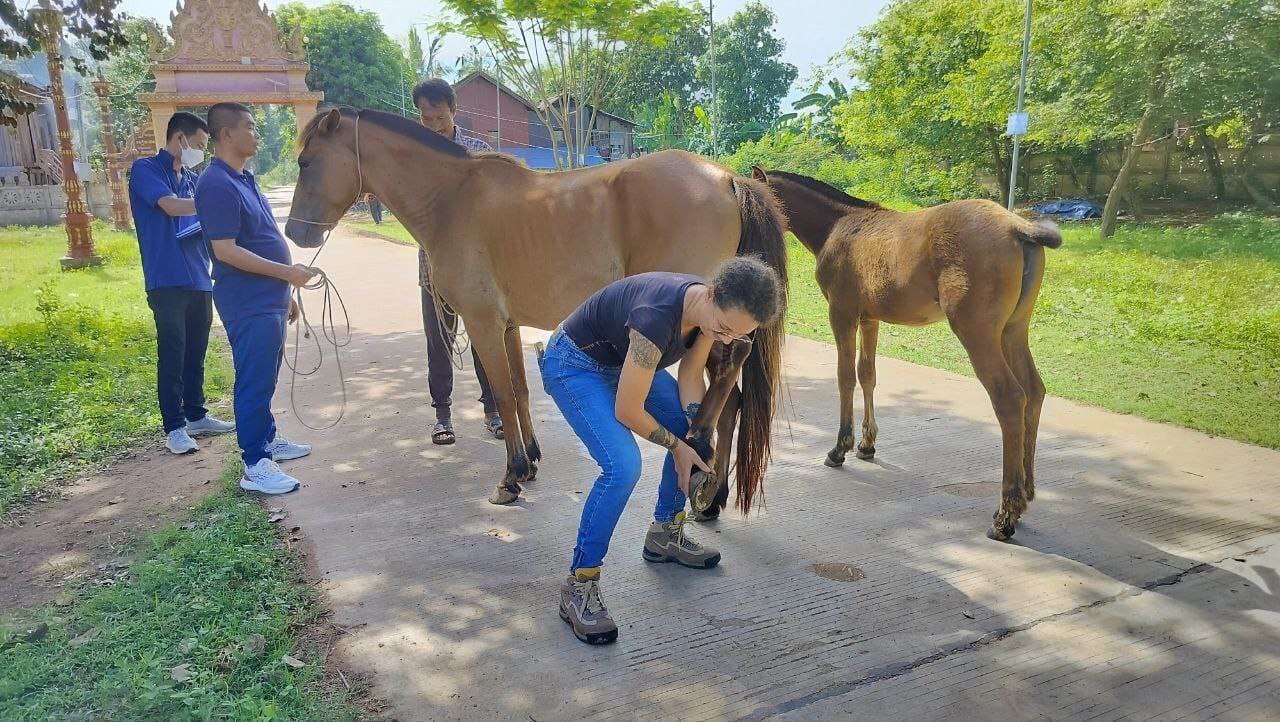
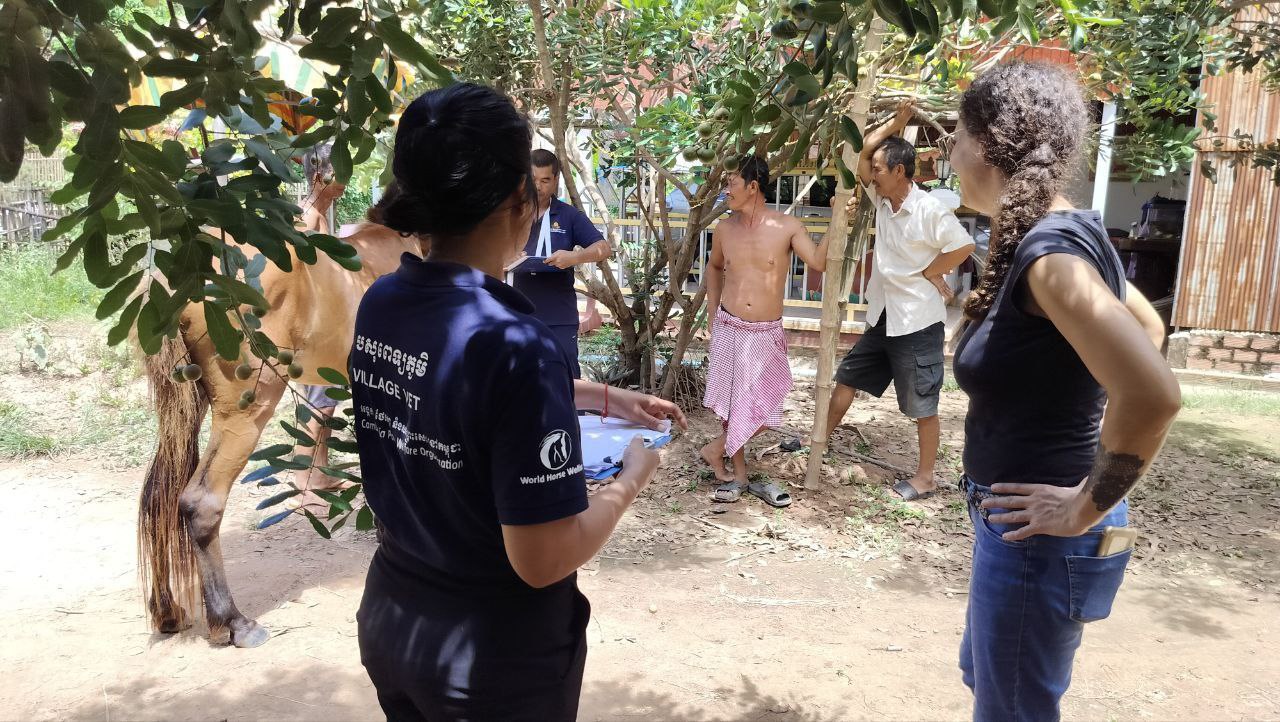
Bursary Student from UK
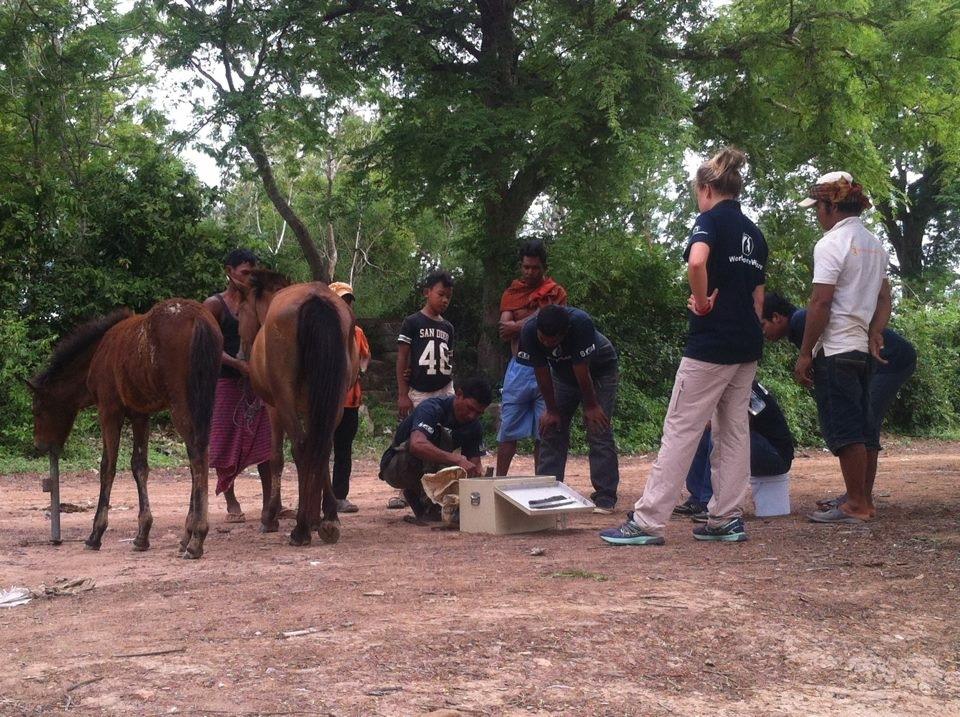
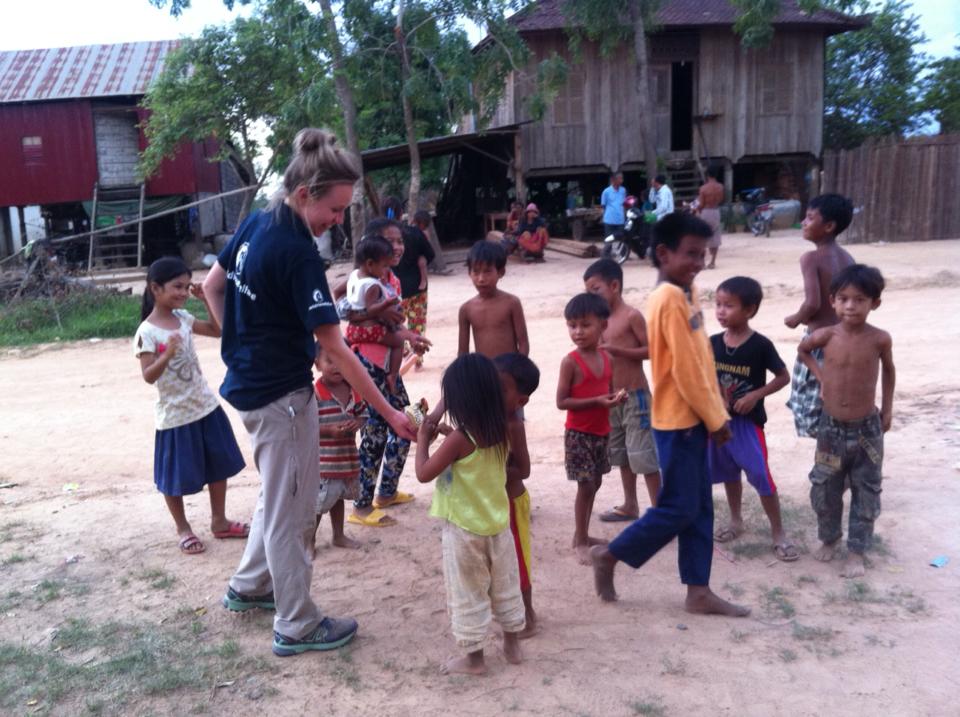
When I stepped out of the plane in Phnom Penh, the hot and humid air that got hold of my throat gave me a hint of what a challenge it is to work outdoors (and keep horses!) in a tropical climate. Yoki and Sengly from The Cambodia Pony Welfare Association were waiting for me at arrivals holding a board with my name written on it. As I approached them with a smile, they welcomed me to Cambodia with a big laugh: they were expecting a man! Apparently names ending with” A” are for males here!
They quickly got over the surprise and kindly drove me to the Cambodian Country Club, where most of the workshop would be held.
In the afternoon I met Rinda Nop, the main vet from the Cambodia Pony Welfare Association, who would also act as my translator and Siraya Chunekamrai, a vet from Thailand and co-founder of the Association, to discuss the program for the next few days.
The level of the participants was very varied: most of the younger attendees had studied at an agricultural college here in Phnom Penh, whereas some of the older participants had very little or no formal veterinary education. They are all based in rural communities in different parts of Cambodia and they are the first port of call when a pony is in need. Rinda and the team from the Cambodia Pony Welfare association visit these communities regularly and whenever they are needed for a more complicated case.
During the first workshop held a couple of months ago, they learnt the principles of a clinical examination, nutrition and hydration, body condition scoring and husbandry and they all received a basic kit for performing an examination (Stethoscope, watch, thermometer).
I delivered some lectures on wound care, colic, parasites, foot problems and basic dentistry. I was really impressed by the enthusiasm of all the attendees who, despite the language barrier (Rinda did an excellent job translating!), asked so many questions and participated to the lectures really actively. We had a chance to practice bandaging on the ponies kept at the Cambodian Country Club. By the end of the afternoon, everyone had mastered bandaging of foot, carpus and cannon bone (which appear to be the most commonly injured sites).
I had the chance to demonstrate naso-gastric intubation and intravenous catheter placement and fluid administration at another riding stable a few km from Phnom Penh. Some of the participants had a go at the techniques, but these will require longer to master and Rinda will keep tutoring the participants when he visits their communities before they are allowed to perform them on their own.
A very interesting of the trip for me was watching Siraya teach about how to achieve a human behavior change in the rural communities via a participatory exercise.
This is extremely important as many health problems affecting the ponies are “human made” (wounds caused by ill-fitting harnesses, insufficient provision of water, food and rest, irregular foot care, inadequate stabling etc.).
Using this participatory exercise, community members are not given a lecture on what they should or shouldn’t do to prevent problems identified by the lecturer. They are instead asked to write or draw the problems that they perceive to be most significant to their ponies’ health. After this survey, the most frequent answers are chosen as topics and the community members are split in groups and are asked to identify causes and then possible preventative measures. After this, the vets, now acting as facilitators, are able to give suggestions and impart knowledge based on the framework built by the community members.
The participants had a chance to practice this technique during a visit to a community in Koh Ras (about 1 hour from Phnom Penh) and it was a huge success! A lot more pony owners than expected turned up as all the wives joined their husbands and came to the meeting too. The meeting was held in the shade of a beautiful temple and everyone participated with enthusiasm and the “women team” won the competition we set up, having given a lot of good ideas on how to prevent wounds and dehydration.
After the meeting, the Cambodia Pony Welfare Organization offered a packed lunch to the pony owners and all the ponies received a health check (a good chance for the workshop participants to practice!) and a wormer.
On the last day, we had another practical on foot examination at the Cambodian Country Club stables, where we had the opportunity to treat a pony that had just suffered a cracked sole. I was really impressed with the good level of foot care given to the ponies at the Cambodian County Club by a local farrier trained by the World Horse Welfare during a previous project. As there are no commercial shoes available, he is able to build shoes out of scrap metal, with a very good end result!
I had a very positive and enriching experience in Cambodia and I hope that this group of very enthusiastic people will have the opportunity to continue their training in order to improve the welfare of the Cambodian ponies and help local communities.
Dr. Marta Ferrari
Veterinary Surgeon from BEVA Trust, UK
29th July – 2nd August 2016
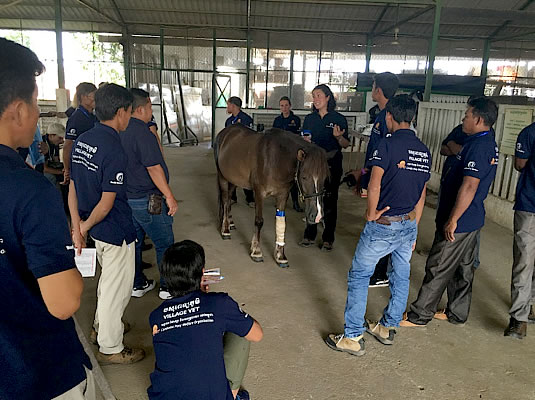
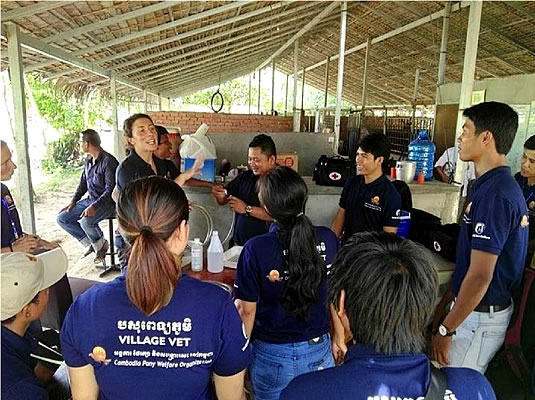
Recent studies raise serious welfare concerns regarding the estimated 93.6 million horses, donkeys and mules in developing countries. The work aims firstly to quantify the different levels of veterinary intervention given to horse owners in Cambodia and secondly to assess whether there is a correlation between this intervention and any significant changes to welfare parameters. The study provides a cross-sectional and a comparative analysis and the aim is to show a base level of intervention that will lead to an improvement in equid health and welfare.
I visited Cambodia in June-July 2016 and travelled with the CPWO team during their routine visits. The CPWO veterinary team visit communities to care and provide preventative health services for working ponies in rural communities. Community visits are conducted on a three monthly rotation whilst a liaison officer in each community oversees health care in the meanwhile. An emergency call-out service is also provided to many of the communities.
In 3 weeks we visited a total of 7 regions subdivided into 21 smaller communities. A total of 295 ponies were assessed in this time
During my time in Cambodia I gained so much from the experience personally and met some inspiring people who work extremely hard to continue improving working equid welfare in Cambodia. I learnt simple phrases in Khmer and was guided every step of the way to explore beautiful Cambodian landscapes, rural and urban culture, architecture and way of life. I loved meeting new people, vets and pony owners alike, and experienced great hospitality and wonderful food as well as lots of laughter! I feel motivated to continue working with the hard working animals and their owners, who taught me so much.
Thank you to all those involved in making my experience a great one. To World Horse Welfare for supporting me in every way, without whom none of this is possible. To the fantastic team “on the ground” in Cambodia whose enthusiasm and humor is infectious and who work extremely hard every day to improve equid welfare, one pony at a time. Thank you.
Catrina Prince
Bursary Student from UK
June-July 2016
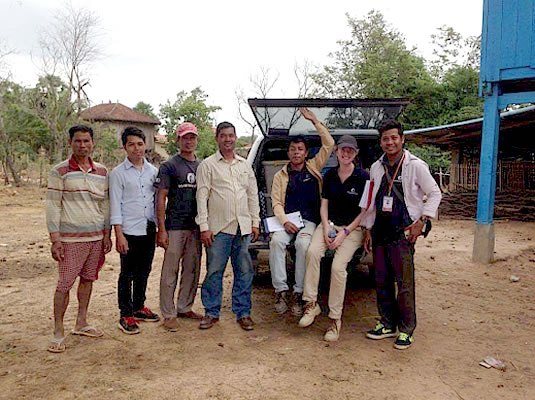
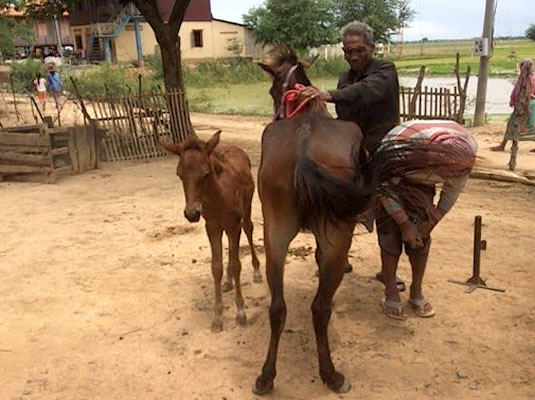
After a successful summer workshop my task was to deliver yet another training to Cambodian village veterinarians and focus on topics that participants felt to be particularly important to them. Together with Siraya Chunekamrai - a veterinarian from Thailand and strong supporter of the CPWO – and Rinda Nop - chief veterinarian of CPWO – the program was finalized and 20 veterinarians from all over the country were welcomed to the five day workshop.
Two days of interactive lectures and a wet lab on wound management and its complications were followed by a field trip to a local horse farm where a number of patients with chronic wounds and neurologic disease were examined and treatment options were discussed.
Fecal and blood samples were collected for further analysis by in the nearby Faculty of Agricultural Sciences’ laboratory. Workshop participants were able to practice intestinal parasite egg identification and search for protozoal parasites in blood smears.
The day in the field was followed by another series of lectures on parasitology, tetanus and common infectious diseases, the last day was reserved for an interactive question and answer session and a feedback analysis to identify important issues that should be adressed in the future. Finally every participant received a certificate and upon farewell everyone was eager to hopefully hear about any future opportunities for professional development.
The course participants showed incredible enthusiasm to learn during the 5 days – Rinda Nop and his assistant Yoki acted as translators and facilitators of every day transport, including the use oft he CPWO 4x4 SUV and a number of ever so common Cambodian mopeds.
Cambodia has an estimated population of 9000 equids – mostly working ponies and a small number of horses in riding stables for tourists and the few better off Cambodians that can afford pleasure riding activities. One must bear in mind though that the majority of ponies has to earn a living by hard work. Horsemansship amongst owners is poorly developed and veterinarians face numerous challenges including lack of understanding by horse owners, hard to handle animals and financial restraints. The predominat number of male horses is not castrated, both due to unwillingness of horse owners to „weaken“ the animal, the limited training of village vets to perform the procedure and - again – the cost to the owner. Stallion behavior paired with a lack of horsemanship commonly leads to traumatic injuries that – when not or only poorly treated - will cause chronic and even harder to treat wounds.
To date veterinary training for Cambodians consists of a four year curriculum at the Faculty of Agricultural Sciences in Phnom Penh. Although training includes lectures on health aspects of a number of species (small animals such as dogs and cats, production animals such as poultry, swine and cattle), hardly any information is passed on about husbandry or veterinary care of horses. Village vets have to get their equine training through time spent with vets from organizations like CPWO, travel abroad (which is expensive) or self study through the internet. Workshops like the one organized by World Horse Welfare and supported by the BEVA Trust for sure play an important role in raising standards of veterinray care for horses and thereby improving horse welfare in developing countries.
Dr. Markus Wilke
Veterinary Surgeon from BEVA Trust, UK
27th November – 2nd December 2016
